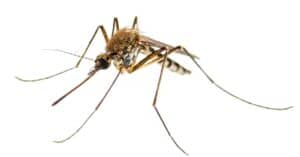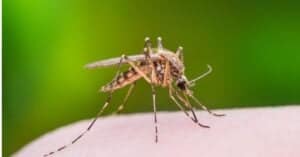Mosquitoes are small, flying insects belonging to the family Culicidae. They are found all over the world and can vary in size from 3-9 mm, depending on their species. Only female mosquitoes suck blood, as they require nutrients for egg production. Male mosquitoes feed solely on plant nectar.
Mosquitoes have a distinct physical appearance, with long, thin bodies that are covered in scales. They have two wings and six legs, which they use for both walking and flying. Mosquitoes also have a proboscis – a long tube-like mouthpart used to pierce skin or plants.
In terms of coloration, mosquito species can differ greatly from one another but generally range from pale brown to dark black. Some species may also feature distinctive markings such as white stripes or spots on their wings or body.
While many people think mosquitoes are simply annoying pests that cause itchy bites, they play an important role in ecosystems by serving as food sources for other animals, such as birds and fish. However, certain mosquito species can also transmit diseases like malaria and Zika virus to humans through their bites, making them a serious public health concern worldwide.
The Blood Type That Mosquitoes Like Best
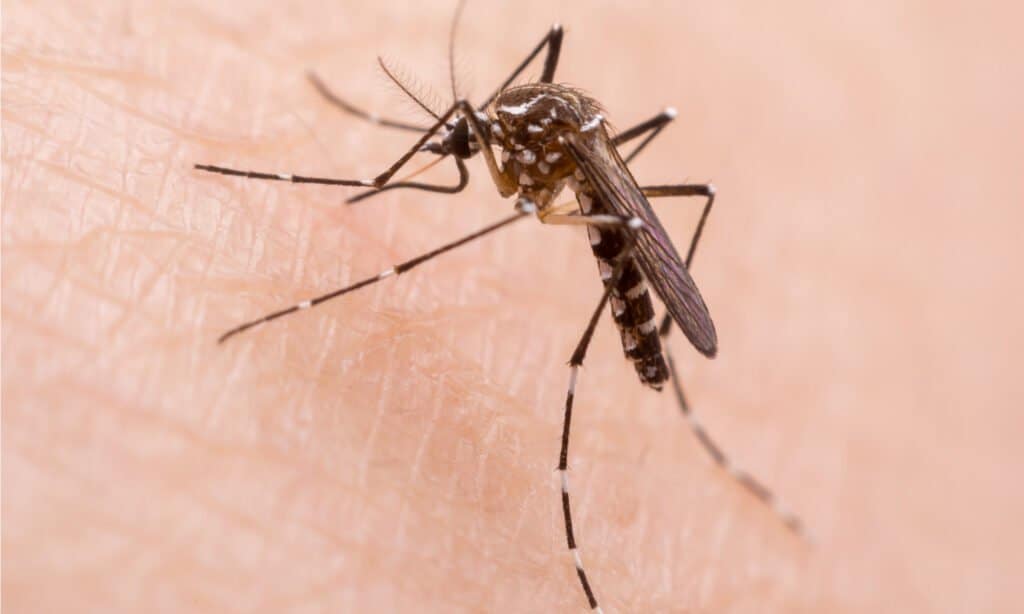
Mosquitoes are known for being carriers of some of the most dangerous parasitic diseases.
©Surachai Pung/Shutterstock.com
A study conducted in 2004 aimed to determine the blood type that mosquitoes preferred when it came to feeding. The researchers released a group of Aedes albopictus mosquitoes and observed their behavior as they landed on different individuals with varying blood types. The results showed that the mosquitos were more attracted to people with Type O blood, landing on them almost twice as often compared to those who had Type A.
Although there was no significant difference between the preference for blood types B and AB, the findings strongly suggested that Type O was indeed the most favored by mosquitoes. This information is crucial in understanding how these pesky insects behave, especially since certain diseases like malaria are transmitted through mosquito bites.
Despite this discovery, however, experts still advise taking necessary precautions against mosquito bites regardless of one’s blood type. Mosquito repellents and protective clothing can significantly reduce the risk of contracting mosquito-borne illnesses and should be used regularly, especially during peak seasons when these insects are most active.
6 Other Reasons Mosquitos Bite
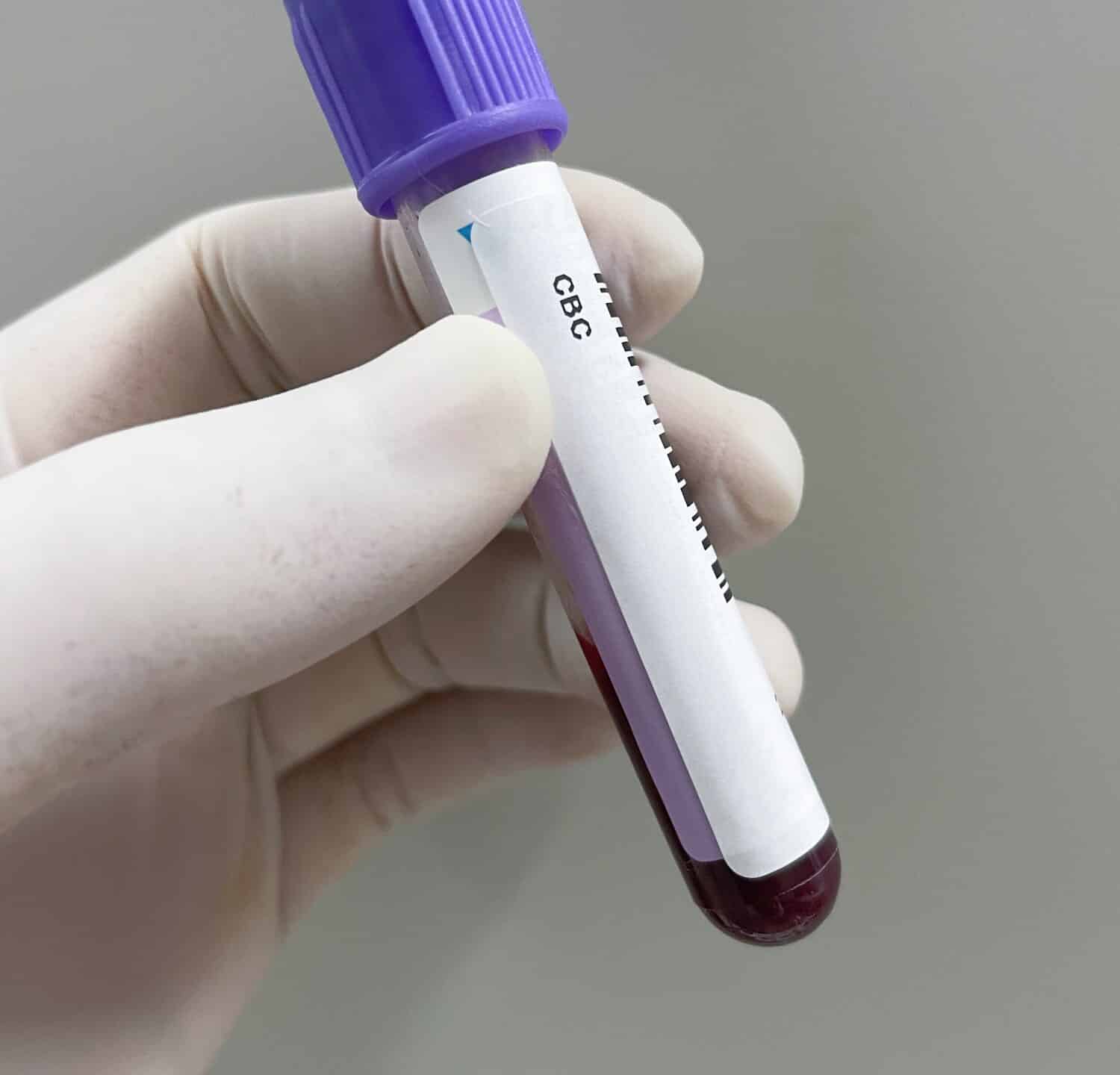
Other than Type-0 blood, there are 6 other reasons that mosquitos may be biting you.
©Schira/Shutterstock.com
If you are getting bitten more often than other people, there might be a good reason for that. Here are some of the reasons, other than Type O blood, that mosquitos may be attracted to you.
Genes
According to recent studies, it has been found that about 85 percent of people emit a chemical signal through their skin that can be detected by mosquitoes. This signal indicates the person’s blood type and is one of the factors that determine whether or not they will be bitten by mosquitoes. Interestingly, this chemical signal seems to make certain individuals more appealing to mosquitoes than others.
Despite popular belief, mosquitoes do not actually bite us for our blood but rather for the proteins in our blood plasma. These proteins help female mosquitoes produce eggs and are essential for their survival. When a mosquito bites an individual with a particular blood type, it can detect these proteins and know if it is worth biting again in order to obtain more nutrients.
Mosquitos Like Carbon Dioxide
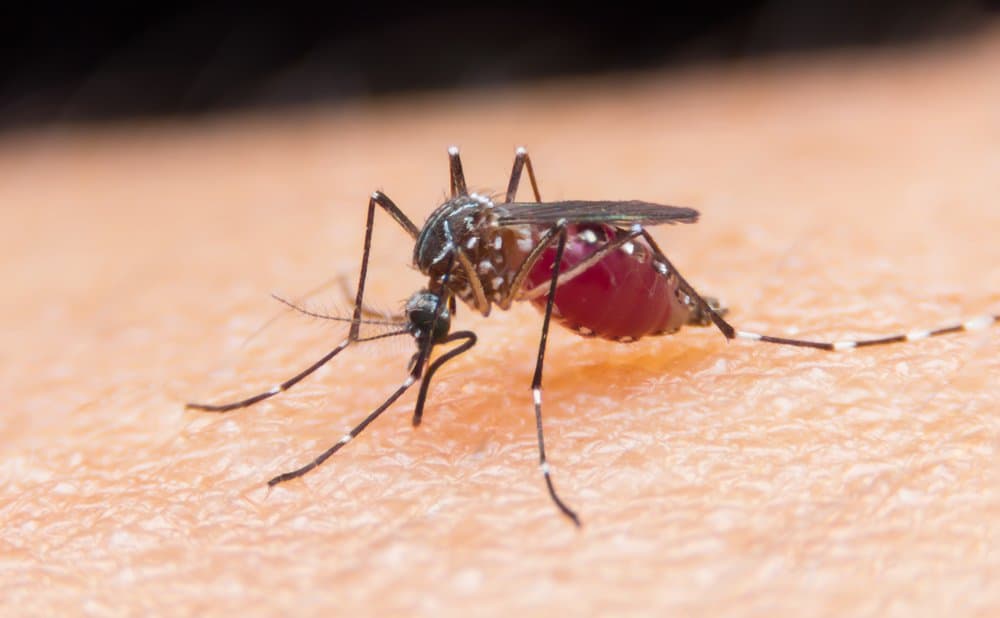
Mosquitoes are attracted to bigger people because they exhale more carbon dioxide.
©AUUSanAKUL/Shutterstock.com
Mosquitoes aren’t only attracted to a certain blood type. They are highly attracted to carbon dioxide, a gas that is naturally emitted by humans when they exhale. In fact, these pesky insects can detect carbon dioxide from almost half a football field away! This makes it easy for mosquitoes to locate potential hosts and feed on their blood.
Interestingly, some individuals naturally exhale more carbon dioxide than others. Generally speaking, larger people tend to produce more of this gas compared to smaller individuals. As a result, bigger individuals may be more attractive targets for mosquitoes.
On the other hand, children tend to exhale less carbon dioxide than adults. This is one of the reasons why kids are typically bitten less frequently by mosquitoes than grown-ups.
Mosquitos Like Heat
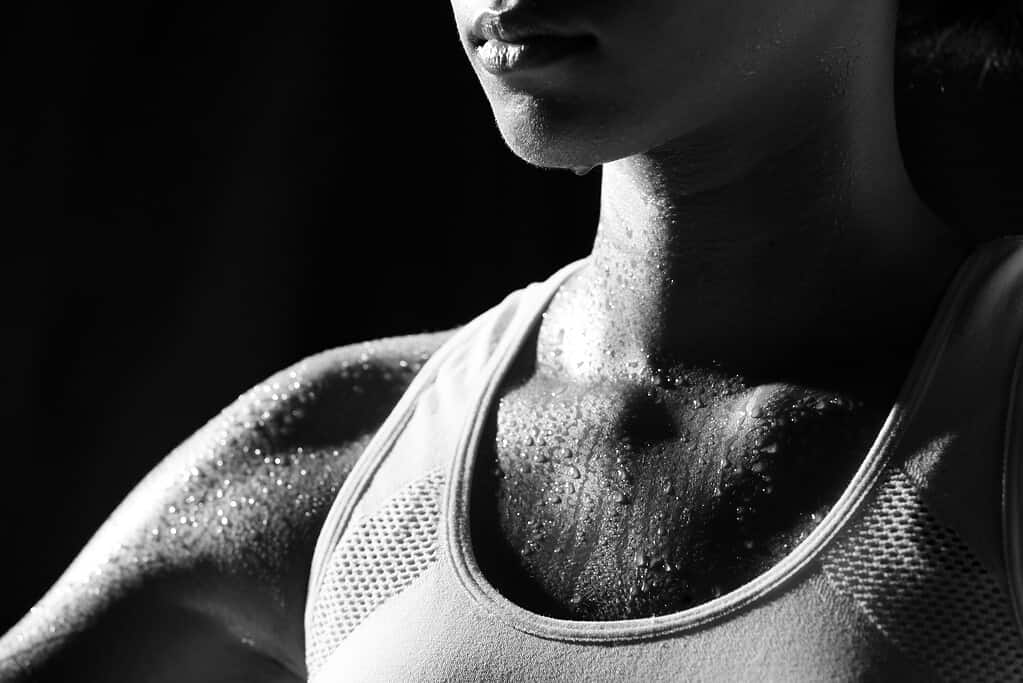
Heat, sweat, and body odor all attract mosquitos.
©Jade ThaiCatwalk/Shutterstock.com
Mosquitoes have a keen ability to detect heat and are naturally drawn toward it. This means that if you’ve recently exercised or have a high metabolism, you may be more attractive to mosquitoes than others. The higher your body temperature, the more likely you are to attract these pesky insects. Even if you don’t have type-O blood, you are still at higher risk of a mosquito bite.
However, it’s not just heat that makes us appealing to mosquitoes. Chemicals found in sweat can also catch their attention. Substances like lactic acid, ammonia, and uric acid all act as attractants for mosquitoes looking for their next meal.
Interestingly enough, research suggests that skin care products could actually decrease our attractiveness to mosquitoes. While body odor itself may not play a significant role in how attractive we are to these pests, certain skincare products can mask the scent of chemicals like lactic acid and ammonia that would otherwise make us attractive targets.
So while there’s no foolproof way to avoid mosquito bites altogether (short of staying indoors), being mindful of your body temperature and taking steps to reduce chemical odors on your skin could help minimize your risk of getting bitten by these blood-sucking bugs.
Pregnant

Pregnant women have higher body temperatures and exhale more carbon dioxide, making them tasty to mosquitos.
©thka/Shutterstock.com
Pregnancy is a time when women experience numerous changes in their bodies, including changes that make them more susceptible to mosquito bites. Pregnant women tend to run hotter than non-pregnant women, with an average body temperature of about 1.26 degrees Fahrenheit warmer. This increase in body temperature can make pregnant women more attractive to mosquitoes seeking warm-blooded hosts.
In addition, pregnant women exhale approximately 20 percent more carbon dioxide compared to non-pregnant individuals. Mosquitoes are attracted to carbon dioxide as it indicates the presence of a nearby host and helps guide them toward potential targets. As such, this increased level of CO2 makes pregnant women even more appealing to mosquitoes.
It is estimated that pregnant women attract twice as many mosquito bites compared to other people due to these factors combined. It’s important for expecting mothers to take precautions against mosquito bites during pregnancy, as they may be at risk of contracting diseases like Zika virus or West Nile, which can have serious consequences for both mother and baby if left untreated. No matter what your blood type, avoiding mosquito bites during pregnancy is wise.
Diet

Even a single beer can make you more attractive to mosquitos. Scientists haven’t figured out why.
©Syda Productions/Shutterstock.com
Research indicates that what you eat may influence the amount of mosquitoes that are drawn to you. A single 12-ounce bottle of beer may increase the likelihood of being bitten by mosquitoes, possibly because alcohol raises skin temperature or emits volatile organic compounds. People on ketotic diets may be more attracted to mosquitoes due to the presence of ketones in their bodies, which act as an attractant.
Despite these findings, scientists admit that further research is necessary before any concrete conclusions can be drawn about how our diet affects mosquito attraction. Nevertheless, these preliminary results offer intriguing insights into how we can potentially protect ourselves against mosquito bites by adjusting our dietary habits accordingly.
Dark Clothes
Mosquitoes are notorious for being attracted to humans, but did you know that the color of your clothes can make a difference in how likely you are to get bitten? According to research, mosquitoes have a preference for dark colors. While their sense of sight isn’t as sharp as their sense of smell, they use vision to locate humans and identify potential prey. Dark objects stand out more against lighter backgrounds, making them easier targets for mosquitoes.
So if you’re wearing dark clothes on a summer evening spent outdoors or during an afternoon hike, be prepared to be targeted by these pesky insects. However, changing your clothing is an easy way to avoid getting bitten. Opt for light-colored clothing instead.
The photo featured at the top of this post is © Schira/Shutterstock.com
Thank you for reading! Have some feedback for us? Contact the AZ Animals editorial team.



